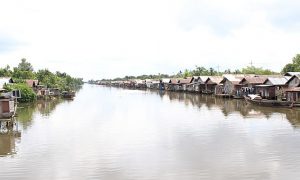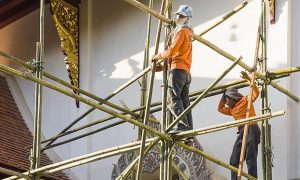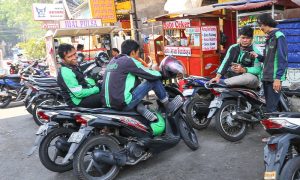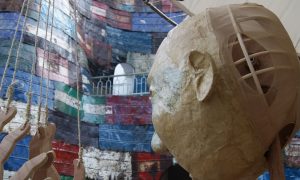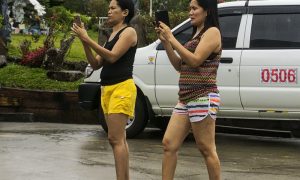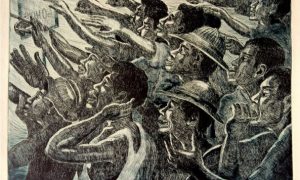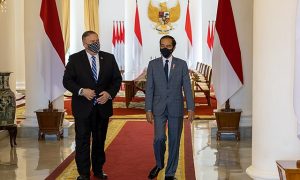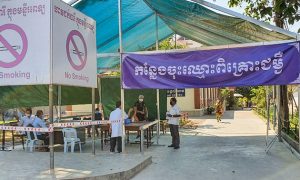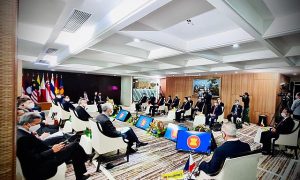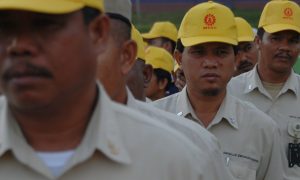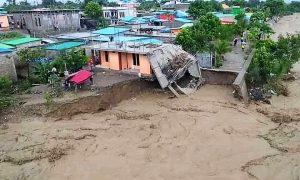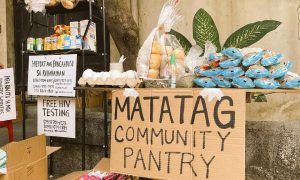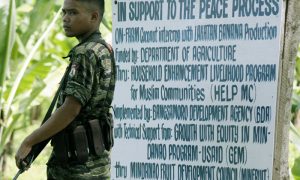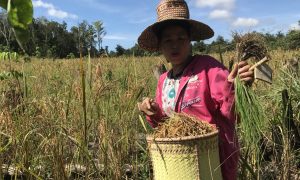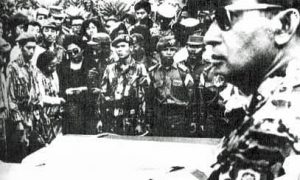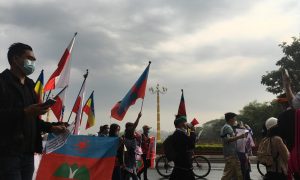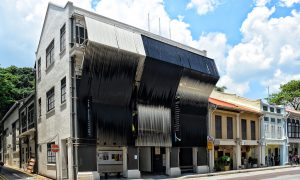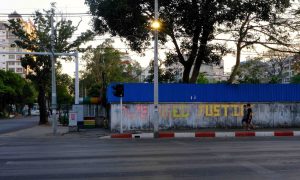Patronage politics, like those predominant in South Kalimantan, are a crucial factor exacerbating climate disasters, and governments rely heavily on inadequate technological solutions to mitigate floods.
Stopping anti-union discrimination in Thailand
Anti-union discrimination supported by the state, fragmentation of Thai enterprises, and a paternalistic regime all contribute to low levels of unionisation.
Indonesian gig workers: the quest for labour-protection
Legislative change and consumer consciousness are key to protecting gig-workers from digital exploitation.
Art and artists in society in Indonesia: future tense
After two decades of enormous social change on global and local scales, what role will art and artists play in Indonesia’s future?
Digital witness and human rights: the Nuezca case
In advocacy that makes use of digital evidence, there are more ordinary citizens, including in places that are harder to reach, who are enabled to participate in the production and dissemination of evidence.
Watch: History and Art History in Southeast Asia
How to track art history as the history of styles deriving from influences, and the history of modernism and its relationship to modernity? Is there art that links Southeast Asia as a region?
Launching ARTSEA: art, design and architecture in Southeast Asia
A platform for diverse collection of articles, videos, seminars, photo essays and reviews on art, design and architecture, and its place in society and history in Southeast Asia.
Quad and the Test for Indonesia’s Leadership in ASEAN
Will the initiative complement or sideline the existing regional architecture built by ASEAN?
The impact of COVID-19 on the civil society sector in Cambodia: a year on
The voices of and inputs from communities and civil society in national strategic development planning have not been heard.
Human rights ritualism in Southeast Asian regionalism
Regional organisations can play a wide range of roles in the human rights governance of the region, because different motivations for adopting rights and commitments result in different regional institutional designs.
Exhibition: Fighting Fear #whatshappeninginmyanmarnow
...an outpouring of passionate anger and disappointment, and a hardening resolve not to be cowed.
Whither labour law reform in Malaysia?
The unprecedented Covid-19 pandemic shows the role of trade unions is even more important in defending workers’ rights during the health and social crisis.
Containing conflict and pandemic in Myanmar: an urgent mission
ASEAN has raised the bar for pushing dialogue in Myanmar: it will be a test for ASEAN's credibility to implement the consensus for real change in Myanmar.
Timor-Leste’s twin crises and what we must learn from them
Swarms of international aid and humanitarian assistance do not change long term problems, but deepen Timor-Leste’s vulnerability to shocks like coronavirus and climate-related extreme weather events.
Community pantries as everyday socialism
Aside from critiquing state inefficiency, I think community pantries are telling us something more ideological.
The value of post-conflict inclusion of youth
How do young people contribute to addressing injustices and advancing agendas of peace?
COVID-19, food insecurity and the resilience of indigenous women in Indonesia
Protecting rural indigenous people’s control over food resources is linked to the wellbeing of migrant workers in the cities.
Seminar presentation: “History and Art History in Southeast Asia” Professor Adrian Vickers
New Mandala and the Southeast Asia Institute at The Australian National University are pleased to present this seminar by Professor Adrian Vickers, who is a Visitor in the School of Culture History and Language.
Part 2: The missing new Indonesian Left—leftist amnesia
Just as the Renaissance from the 14th to the 17th centuries overcame the dark Middle Ages by reappraising classical insights, critical history is now imperative.
Part 1: The missing new Indonesian Left
Just as it was particularly difficult for the progressives to withstand repression and killings, reviving the Left after 1965 was equally formidable.
NBSEAS discusses “The Irish Buddhist: The Forgotten Monk Who Faced Down the British Empire”
A new book looks at the significance of U Dhammaloka, an Irishman who “went native” and became a Buddhist monk in British Burma
What kind of solidarity for what kind of Myanmar?
What do nascent solidarities mean for the future of ethno-religious minorities in a post-coup Myanmar?
Scholarly Journeys: Substation and Singapore’s Academia
The Substation as we know it may be history, but its significance should not be written as an obituary.
The people’s call for R2P: to be or not to be?
The capacity of R2P is limited, and the decision-making process is fraught with political gamesmanship.
 Facebook
Facebook  Twitter
Twitter  Soundcloud
Soundcloud  Youtube
Youtube  Rss
Rss 